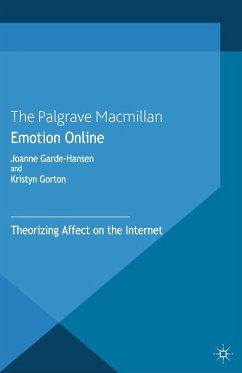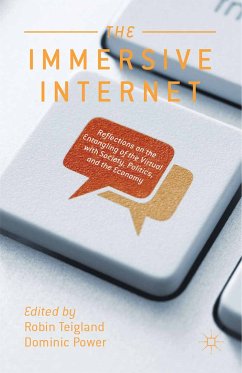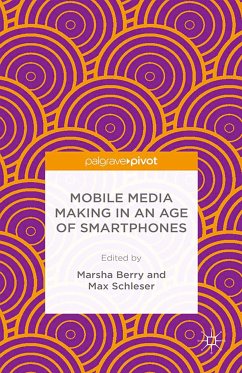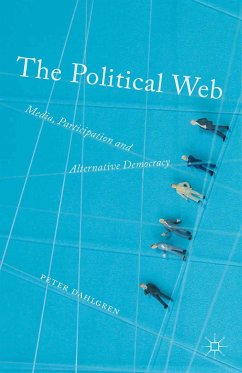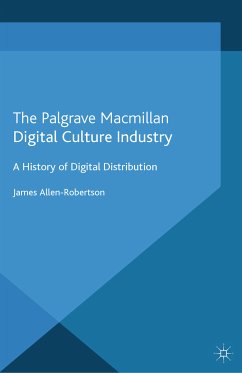
Digital Culture Industry (eBook, PDF)
A History of Digital Distribution
Versandkostenfrei!
Sofort per Download lieferbar
40,95 €
inkl. MwSt.
Weitere Ausgaben:

PAYBACK Punkte
20 °P sammeln!
How did digital media happen ? Through a unique approach to digital documents, and detailed intricate histories of illicit internet piracy networks, The Digital Culture Industry goes beyond the Napster creation myth and illuminates the unseen individuals, code and events behind the turn to digital media.
Dieser Download kann aus rechtlichen Gründen nur mit Rechnungsadresse in A, B, BG, CY, CZ, D, DK, EW, E, FIN, F, GR, HR, H, IRL, I, LT, L, LR, M, NL, PL, P, R, S, SLO, SK ausgeliefert werden.



